How to Train for the Everest Base Camp Trek: An Ultimate Guide
So, you've decided to take on the Everest Base Camp (EBC) trek – one of the most legendary and awe-inspiring journeys on the planet! Trekking to As much as EBC is about vistas and theconcept of standing atop what are some of the most demanding summits in the world, that is not the purpose of the climb It is about seeing the inner spirit, conquering oneself and living out an epic adventure.
But as it may sound romantic this trek is in no way an easy joke. That’s why it was a high-altitude event that calls for preparation to put your body and mind through the rigor. Here are the details of the preparation about the type of cardio training, strength training, and how to protect your mind. Let’s dive in!
Understand the Everest Base Camp Trek Requirements
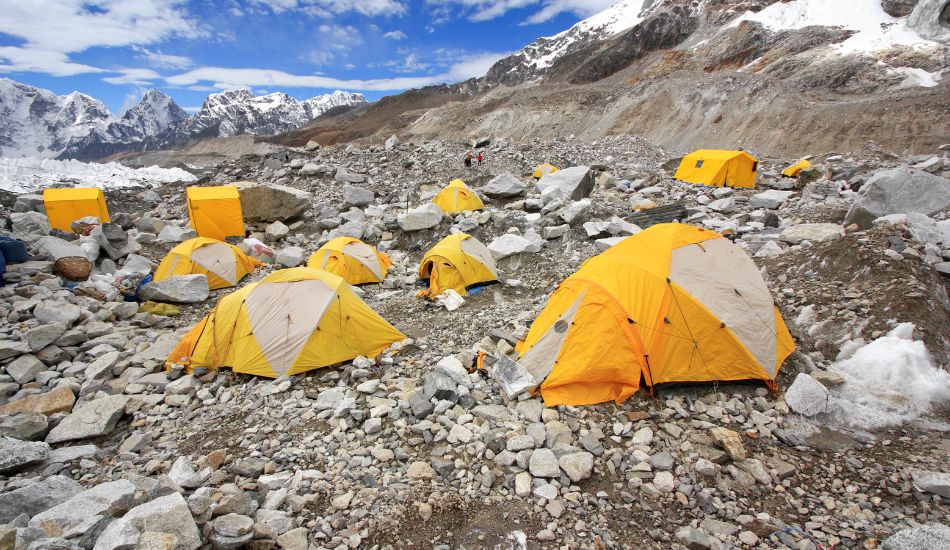
1. Distance and Altitude:
The EBC trek distances approximately 130 km (80 miles) in and out and has the maximum height of 5,364m (17,598 ft) at the base camp. this is particularly a challenge to those who dare the Rockies because at high altitudes, oxygen is difficult to come by.
2. Terrain and Weather:
The trek features rocky trails, uphill climbs, downhill descents, and unpredictable weather. Training for uneven terrain is essential since you’ll be navigating rocky paths, sometimes covered in snow and ice.
Featured Trip: Everest Base Camp Trek 17-Days
Building a Solid Training Foundation (3-6 Months Prior)
Starting early is the key to success here. You should ideally begin training at least three to six months before your trek to develop the necessary strength, endurance, and flexibility.
1. Cardiovascular Training
Cardio is essential because it builds stamina and trains your body to endure long, high-intensity activities with less oxygen.
Hiking: Start hiking with a loaded backpack on weekends. Gradually increase the distance and elevation gain of your hikes. Aim to reach at least 10 miles with a good elevation gain by the end of your training.
Walking: Make brisk walking a part of your routine. Incorporate daily walks ranging from 1-2 hours, and increase the pace gradually.
Running and Cycling: Running, biking, or even stair climbing will build your lung capacity and leg strength. Try to include interval training, where you alternate between high-intensity bursts and moderate paces, for endurance.
Tip: Aim to train at a pace where you can carry on a conversation without gasping for air. This simulates the endurance needed for the slower, sustained effort of high-altitude trekking.
Strength Training
Strength training is a game-changer for trekking because it builds the muscle groups you’ll rely on for carrying your body and backpack over rough terrain.
Leg Workouts: Your legs will bear the brunt of the work. Do squats, lunges, step-ups, and calf raises to build your quadriceps, hamstrings, glutes, and calves. Aim for high-rep, low-weight sets to build endurance.
Core Exercises: Strong core muscles help stabilize your balance on uneven trails. Exercises like planks, mountain climbers, and Russian twists are ideal for core strengthening.
Upper Body Strength: While not as crucial as lower body strength, upper body training helps with carrying a backpack. Incorporate exercises like push-ups, rows, and shoulder presses.
Goal: Aim to do strength training exercises 2-3 times per week with a focus on endurance and stability over brute strength.
Flexibility and Balance
Flexibility improves your range of motion, making it easier to move on tricky sections of the trail.
Yoga and Stretching: Incorporate yoga or a full-body stretching routine to improve flexibility and mental focus. Stretch key areas like the hamstrings, calves, hips, and back.
Balance Drills: Standing on one leg, or using a wobble board, would help with the balance needed to cross rocky ground which is uneven.
Adapting to Altitude
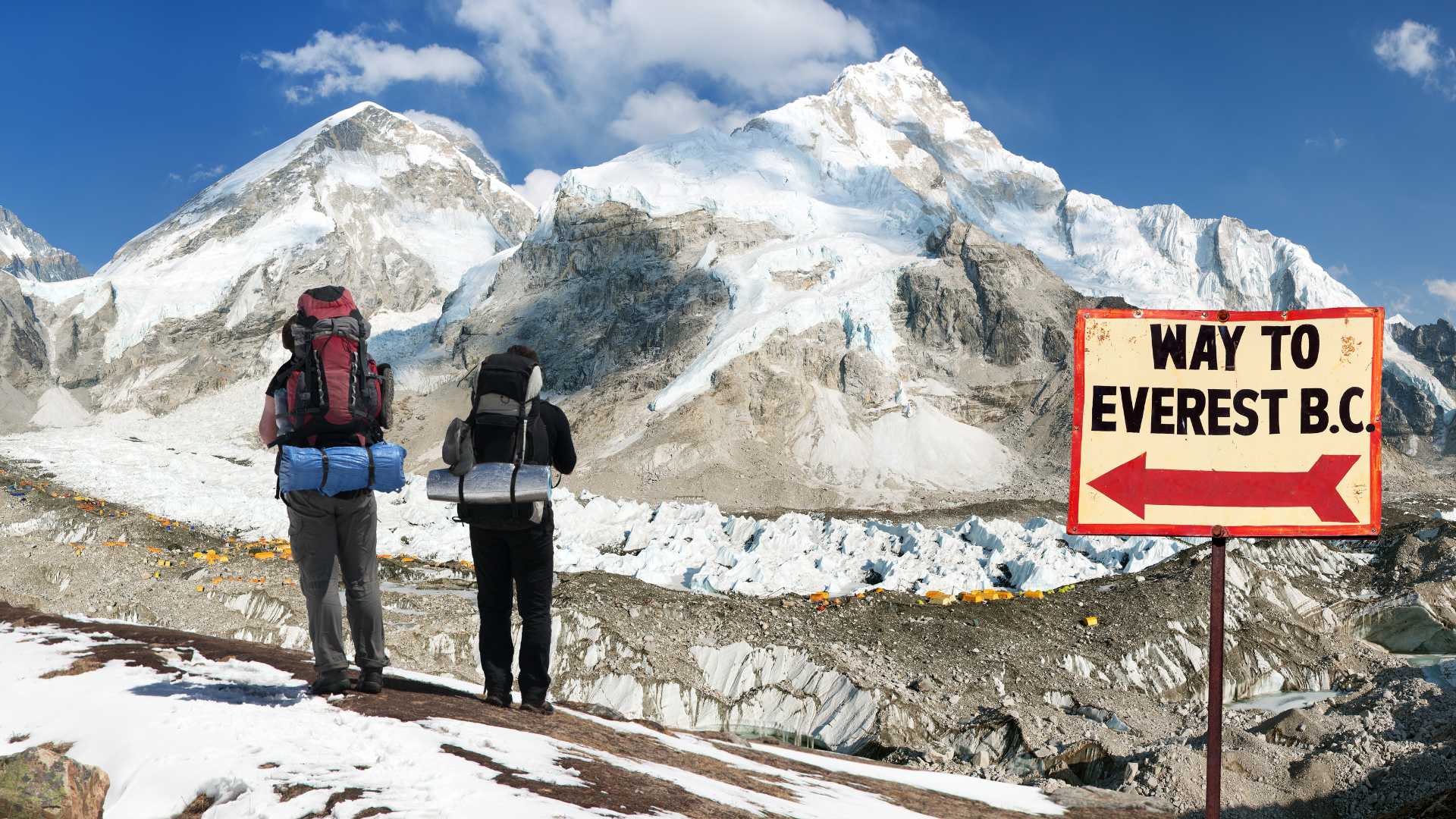
One of the biggest challenges of the EBC trek is adjusting to the high altitude, where oxygen levels are lower. If you live near sea level, here are a few strategies to help your body acclimate better:
Train in High Elevation Areas: If you can, train at higher altitudes. Spending weekends hiking or training in mountainous areas like the Rockies can help prepare your body.
Simulate High Altitude: If access to altitude is difficult, simulate it by using stair machines or treadmills at a high incline to mimic the uphill trekking experience.
Breathing Exercises: Practice deep breathing and controlled breathing exercises. Yoga practices like pranayama can improve your lung capacity and oxygen intake.
Tip: Remember to hydrate well and pace yourself when trekking at altitude. Avoid pushing yourself too hard as altitude sickness is more likely when you exert yourself.
Featured Trip: Everest Three High Passes Trek
Developing Mental Resilience
Endurance treks like EBC require a positive mindset as much as a fit body. There will be times when the trail feels endless, and altitude fatigue sets in. Cultivating mental strength will help you stay focused, motivated, and upbeat.
Visualization Techniques: Visualize yourself completing the trek, step by step, even during tough spots. Picture the reward of reaching base camp!
Break Down the Journey: Instead of seeing the trek in its entirety, actually segment it in one’s mind into shorter distances that can be hiked in one day. Another good strategy can involve having a daily goal for each of the days of a week for example.
Mindfulness and Meditation: Regular mindfulness practices can improve patience and reduce stress, helping you manage the discomfort and fatigue of long hikes.
Mindset Tip: Remember, trekking is about perseverance, not speed. Focus on enjoying the journey rather than rushing to the end.
>>Everest Base Camp Trekking Routes
Planning Your Training Schedule
Here’s a sample 12-week training schedule to help you stay on track:
| Weeks | Activity | Details |
| 1-3 | Hiking & Cardio | Brisk walking (1 hour, 4-5 times/week), light hiking |
| Strength & Flexibility | Core, legs (2 times/week), full body stretch | |
| 4-6 | Interval Training & Hiking | Running or cycling (30 mins, interval style, 3 times) |
| Hiking | Long hike (5-7 miles) with gradual elevation | |
| Strength | Add lunges, squats, and upper body exercises | |
| 7-9 | High-Intensity Cardio | Uphill hike or stair climbing (30 mins, 4 times/week) |
| Strength & Balance | Core, legs, yoga (3 times/week) | |
| Long Hike | 10-mile hike with weighted pack | |
| 10-12 | Tapering & Active Rest | Light hiking, yoga, stretching, reduce intense cardio |
Pro Tip: Make sure to include rest days! Overtraining increases the risk of injury and fatigue, which could jeopardize your trek.
Choosing the Right Gear for Training
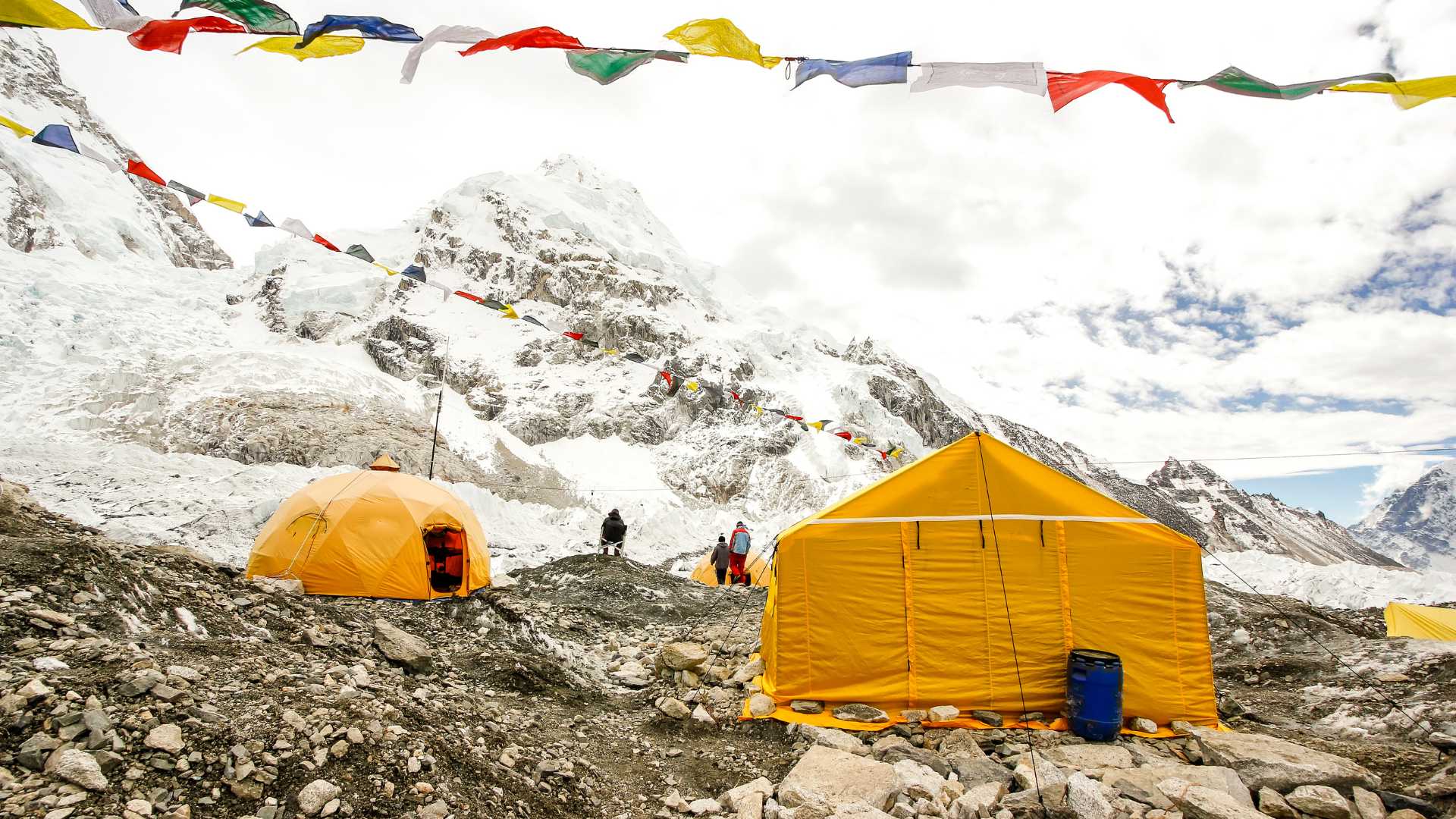
Training with the right gear helps you familiarize yourself with your trekking equipment and identify any areas of discomfort early on.
Backpack: Practice carrying a pack with similar weight (about 10-15 pounds) that you’ll carry on the trek.
Trekking Boots: Break in your trekking boots by using them in all your training hikes to avoid blisters and discomfort on the actual trek.
Trekking Poles: Trekking poles help take pressure off your knees and add stability. Get used to using them during your hikes.
Reminder: Wear the same or similar clothing you plan to bring on your trek, so you get used to layers and the fit.
Recommendation Read: What To Pack For Everest Base Camp Trek
Health and Nutrition Tips
Your body will be working hard, so fuel it with the right nutrition during both training and the trek.
Hydrate: Staying hydrated is critical, especially at high altitudes where dehydration can sneak up on you. For more details, you can read on How Hard is Everest Base Camp Trek.
Balanced Diet: Prioritize protein for muscle recovery, carbs for energy, and fats for sustained fuel. Incorporate plenty of fruits, vegetables, whole grains, and lean meats.
Supplements: Iron-rich foods or supplements can help your body manage lower oxygen levels, but consult with a doctor before starting any new supplements.
Pre-Trek Physical Check: Visit a physician for a general health check-up to ensure you’re physically fit for the challenges of a high-altitude trek.
Mental and Emotional Preparation for the Big Adventure
Finally, keep in mind that this trek is an adventure as much as a physical challenge. Prepare to soak in the Himalayan beauty, the camaraderie of fellow trekkers, and the simplicity of life on the trail.
Embrace the Adventure: STOP trying to be perfect. Every day on the trail is unique and going with the flow of each experience will make the hike more worthwhile.
Manage Expectations: Be prepared for days when things don’t go as planned – whether it's the weather, altitude sickness, or general fatigue. Flexibility and adaptability will make your journey smoother.
Rrecommendation Read: Best Time to Visit Everest Base Camp
Final Thoughts
Preparation for the trek to the Everest Base Camp is part physical fitness, and part psychological readiness. By following the recommendations discussed above, you guarantee yourself the subsequent trekking adventure and success. Featuring the mesmerizing beauty of the Mountains, self accomplishment, or friendship with fellow trekkers, EBC trek is one of a lifetime – and your training will prepare you for the most of the journey. Have a great trekking and meet you at the base camp.
FAQs
How long should I train for the Everest Base Camp trek?
As a rule, it’s best to begin preparing for a trek at least 3-6 months prior your journey. This enables you to acquire ample time needed to put up the sufficient endurance strength and flexibility. The objective here is simply to establish a progressive base on which you can build to increased cardiovascular endurance, strength and hill hiking ability. A combination of cardio, strength, and flexibility training schedule will give you a perfect natural model for trekking.
What kind of fitness level is required for Everest Base Camp?
While you don’t need to be an athlete, a moderate to high fitness level is essential. Since you’ll be trekking up to 8 hours a day, often at high altitudes, it’s important to have good cardiovascular fitness, lower body strength, and stamina. A baseline of consistent activity, including long hikes and strength training, will help you acclimate better and enjoy the trek.
Do I need to train at high altitudes to prepare for the Everest Base Camp trek?
Training at high altitudes is ideal but not required. If you live in a low-altitude area, you can mimic the experience by hiking or walking on inclined terrain or using a treadmill with an incline. If possible, take weekend trips to higher elevations or use high-altitude simulation masks, although these are less effective than real altitude training.
What specific exercises should I include in my training plan?
Focus on:
Cardio exercises like hiking, running, and cycling for endurance.
Strength exercises for the legs (lunges, squats), core (planks, crunches), and upper body (push-ups).
Flexibility and balance exercises through stretching or yoga to prepare for uneven terrain.
Aim to combine these elements in weekly workouts, gradually increasing intensity as you progress.
How do I train for carrying a backpack on the trek?
Begin by practice hikes wearing loaded backpack usually start with a light load and gradually work your way up to the desired carrying weight of about 10-15 pounds. This will in return assist your body to cope with the weight in order to ensure that muscles are well positioned for full days of trail. Use the backpack often to determine the correct position and load distribution for a long-term use.
How does the Everest Base Camp trek compare to other hikes?
The EBC trek is unique due to its high altitude and extended duration (typically 10-14 days). Unlike shorter hikes, the EBC trek combines high altitude, multi-day trekking, and diverse weather. It demands steady pacing and acclimatization, making it more challenging than most non-altitude treks.
Can I still complete the trek if I am over 50 years old?
Absolutely! Many trekkers over 50 successfully complete the EBC trek with proper preparation. Adjust your training plan to allow more time for building strength and stamina, and consult with a healthcare provider to ensure your fitness levels align with the trek requirements.

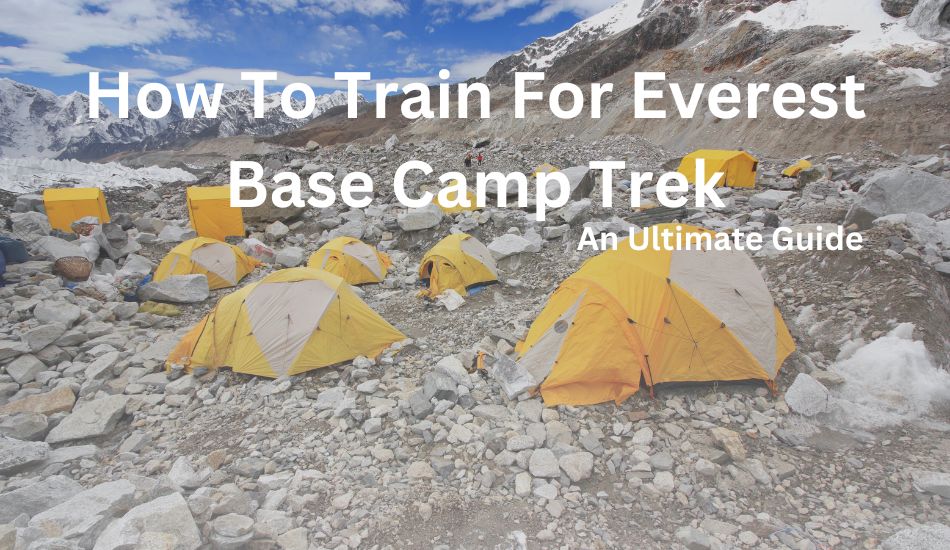
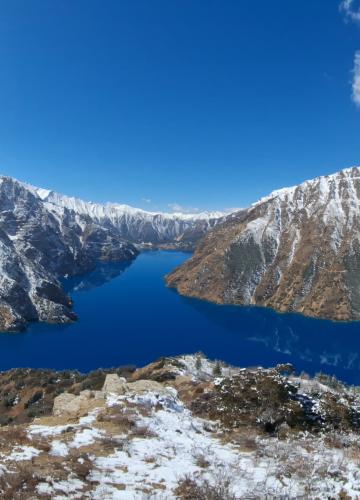
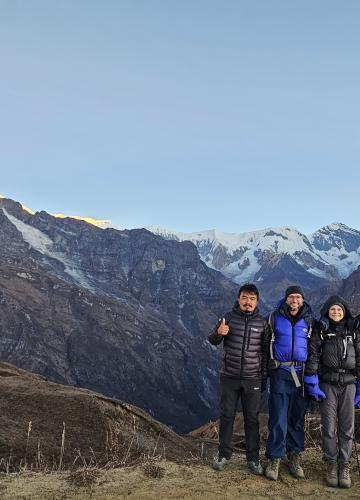
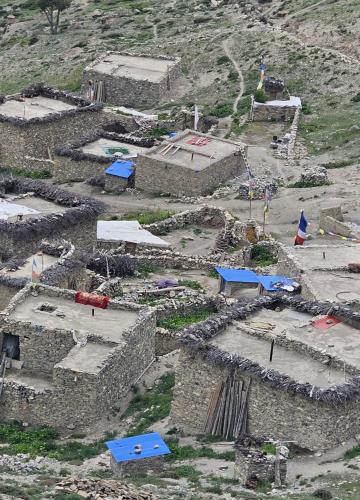

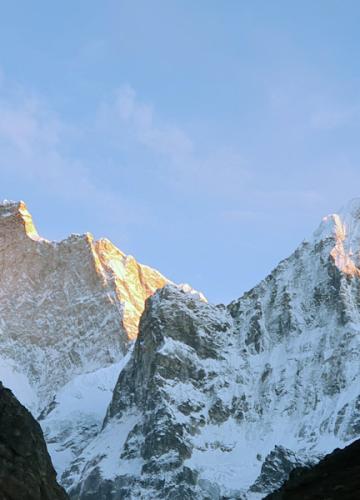


Leave Your Comment